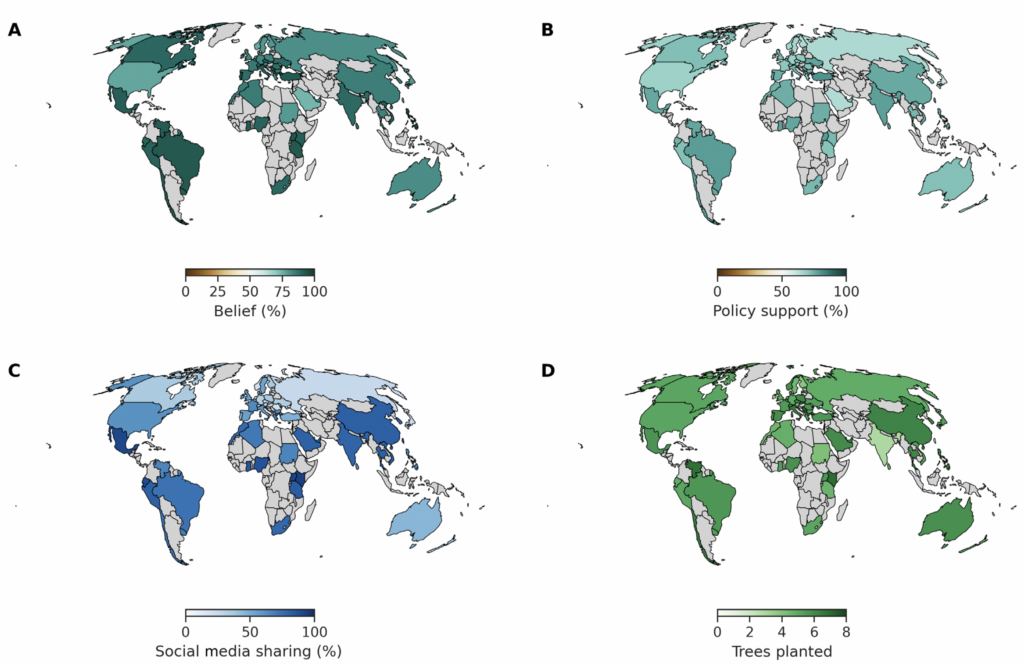
Behavioral scientists worldwide have come together to proactively address the urgent issue of climate change.
A joint research team, led by Professor Dongil Chung from the Department of Biomedical Engineering and Professor Sunhae Sul from the Department of Psychology at Pusan National University conducted an analysis of climate change perceptions and behavioral changes, in collaboration with 255 international researchers from 63 countries.
The analysis revealed that messages emphasizing a dark future were effective for disseminating information on the Internet and social media. However, these messages did not foster support for policy changes or alter personal beliefs. In contrast, activities such as tree planting campaigns produced negative outcomes. The study demonstrated that negative messaging can induce feelings of helplessness, which may hinder behavioral change.

Figure 1. Country-level means of each outcome variable. Countries without available data are shown in gray. Statistics are shown in tables S5 to S8. (A) Climate change belief, (B) policy support, (C) sharing information on social media, and (D) trees planted via the WEPT.
The international research team investigated how 11 psychological messages influenced public climate awareness and behavior. These messages included depictions of a bleak future due to climate change, opinions from climate scientists, concerns expressed by others, and potential impacts on future generations.
The research team concluded that prompting action on climate change poses a formidable challenge. Many messaging strategies struggled to engender actual behavioral changes, and responses to climate messages varied significantly among different individuals and across countries.

Figure 2. Average effects (i.e., posterior estimates using Bayesian regressions) by intervention for each outcome.
Their findings underscore that there is no one-size-fits-all solution to the climate crisis. Nevertheless, understanding how each message operates and the specific contexts in which they are effective is crucial. Scientists and policymakers should endeavor to design messages tailored to specific audiences.
Professor Chung stated, “Through this research, we gained insights into the messaging strategies that foster climate change awareness and behavioral change.” He further noted, “In the future, research and policies aimed at addressing climate change must work in tandem.”
The findings of this research have been published in Science Advances on February 7, 2024. This study was supported as part of the Social Sciences Korea (SSK) program by the National Research Foundation of Korea (NRF).
Journal Reference
Madalina Vlasceanu, Kimberly C. Doell, Joseph B. Bak-Coleman, et al., “Addressing climate change with behavioral science: A global intervention tournament in 63 countries,” Science Advances, (2024).